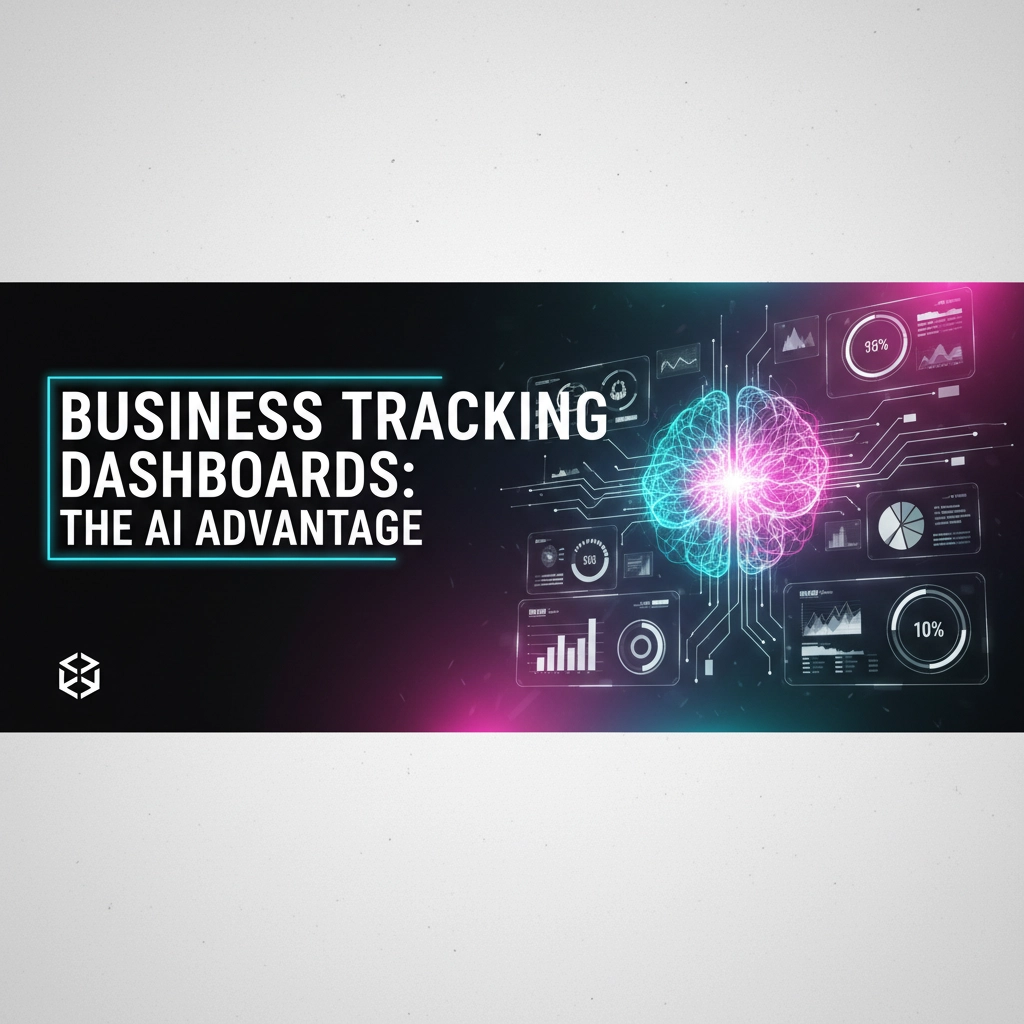Business tracking dashboards powered by artificial intelligence represent a fundamental shift from static reporting to dynamic intelligence systems. Traditional dashboards show what happened. AI dashboards predict what will happen and automatically flag what needs attention now.
The difference matters. Organizations using AI-powered dashboards reduce time to insight from weeks to seconds while eliminating 95% of manual data errors that plague traditional reporting systems.
Speed Eliminates Decision Delays
AI dashboards deliver answers in real-time rather than forcing teams to wait for manual report compilation. Sales managers identify deal bottlenecks instantly. Marketing teams spot campaign performance issues within hours of launch. Operations leaders detect supply chain disruptions before they impact customers.
This speed advantage compounds. Fast insights enable fast decisions. Fast decisions create competitive advantages. Companies implementing AI dashboards report 30% improvements in forecast accuracy and 20% reductions in operational inefficiencies.

Manual reporting cycles consume 15-20 hours per period. AI automation reduces this to minutes while improving accuracy. The time savings allow analytical teams to focus on strategic initiatives rather than routine data compilation.
Real-Time Monitoring Changes Everything
Traditional dashboards provide snapshots. AI dashboards provide surveillance.
Continuous monitoring algorithms scan thousands of data points simultaneously, flagging anomalies the moment they occur. Revenue drops in specific regions trigger automatic alerts. Customer satisfaction scores declining below thresholds generate immediate notifications with recommended actions.
This proactive approach shifts organizations from reactive to preventive operations. Problems get addressed before they escalate. Opportunities get captured before they disappear.
Real estate professionals understand this advantage. Market conditions change rapidly. Pricing trends shift weekly. Inventory levels fluctuate daily. AI-powered tracking systems like Pulse Intelligence monitor these variables continuously, alerting agents to opportunities and risks as they emerge rather than after quarterly reviews.
Predictive Intelligence Drives Smarter Decisions
AI dashboards analyze historical patterns to forecast future trends. Predictive models identify high-risk scenarios months before they materialize. Customer churn predictions enable proactive retention efforts. Sales forecasting improves resource allocation and inventory planning.
Walmart achieved a 30% reduction in forecast errors using AI-driven predictive analytics. Wayfair discovered that customers who didn’t purchase specific items frequently bought alternatives in the same category. Maersk optimized port productivity by predicting bottlenecks across its global shipping network.
These examples demonstrate predictive intelligence in action. Pattern recognition algorithms process massive datasets to identify trends invisible to human analysis. The insights drive strategic decisions based on probable outcomes rather than historical assumptions.

Data Democratization Accelerates Growth
AI dashboards make data accessible to non-technical team members. Marketing managers query customer behavior without SQL knowledge. HR leaders analyze retention patterns through natural language interfaces. Operations teams explore efficiency metrics without database training.
This democratization eliminates bottlenecks. Data requests no longer queue behind analyst availability. Teams get answers when they need them. Decision-making accelerates across all organizational levels.
78% of companies operate multiple disconnected dashboards. AI systems consolidate these platforms into unified intelligence centers. Single queries pull data from CRM systems, financial platforms, marketing tools, and operational databases simultaneously.
Automation Eliminates Human Error
Manual data entry contains errors in 94% of spreadsheets. AI automation reduces error rates by 95% while processing data continuously rather than periodically.
Automated data validation catches inconsistencies immediately. Duplicate records get flagged automatically. Missing information generates alerts for completion. Data quality improves while manual oversight requirements decrease.
Quality improvements matter most in critical business functions. Financial reporting errors create compliance risks. Sales forecasting mistakes impact resource allocation. Customer data inaccuracies damage relationship management. AI systems minimize these risks through consistent, accurate processing.

Industry-Specific Applications
Different industries leverage AI dashboard advantages differently. Healthcare organizations monitor patient outcomes in real-time. Manufacturing companies track production efficiency continuously. Financial services firms detect fraud patterns automatically.
Real estate professionals benefit from specialized applications. Market trend analysis identifies emerging opportunities. Property valuation models predict price movements. Lead scoring algorithms prioritize prospect engagement. Client communication tracking optimizes relationship management.
Modern real estate demands data-driven decision making. Agents using AI-powered intelligence platforms outperform those relying on intuition and experience alone. Market conditions change too rapidly for manual analysis to remain competitive.
Implementation Considerations
AI dashboard implementation requires strategic planning. Data integration challenges must be addressed. Team training needs assessment and execution. Change management processes ensure adoption success.
Start with high-impact use cases. Identify metrics that drive business decisions. Focus on areas where speed advantages create competitive benefits. Expand gradually as teams develop confidence with AI-powered insights.
Technical requirements include data quality standards, integration capabilities, and security protocols. Cloud-based solutions offer scalability advantages over on-premise implementations. Mobile access enables real-time decision making regardless of location.

Measuring Success
AI dashboard success metrics extend beyond technical performance. User adoption rates indicate acceptance levels. Decision-making speed improvements demonstrate operational benefits. Business outcome improvements validate strategic value.
Track time-to-insight reductions. Measure error rate improvements. Monitor user satisfaction scores. Analyze business performance correlations with dashboard usage patterns.
Revenue impact provides the ultimate success measurement. Organizations implementing AI dashboards report 15-25% improvements in key performance indicators within six months. Customer satisfaction increases. Operational efficiency improves. Strategic decision quality enhances.
Future Considerations
AI dashboard capabilities continue evolving. Natural language processing improvements make interactions more intuitive. Machine learning algorithms become more accurate over time. Integration possibilities expand with API developments.
Voice interfaces will enable hands-free data queries. Augmented reality visualizations will provide immersive analytics experiences. Automated report generation will eliminate remaining manual processes.
The competitive advantage belongs to organizations embracing AI-powered intelligence now rather than waiting for future developments. Early adopters develop operational advantages that compound over time.
Getting Started
Begin AI dashboard implementation with clear objectives. Identify critical business metrics requiring real-time monitoring. Assess current data infrastructure capabilities. Evaluate solution providers based on integration requirements and scalability needs.
For real estate professionals, specialized platforms like PWRU’s business intelligence suite provide industry-specific AI capabilities designed for agents and brokers. These solutions understand real estate workflows and deliver relevant insights without generic business dashboard limitations.
Brokers seeking comprehensive performance tracking solutions can schedule a demo to explore brokerage-specific AI dashboard capabilities. Individual agents can access Pulse Intelligence for immediate implementation of AI-powered business tracking.
The AI advantage in business tracking dashboards represents more than technological improvement. It enables fundamental changes in how organizations operate, decide, and compete. Companies leveraging these advantages today build sustainable competitive positions for tomorrow.





